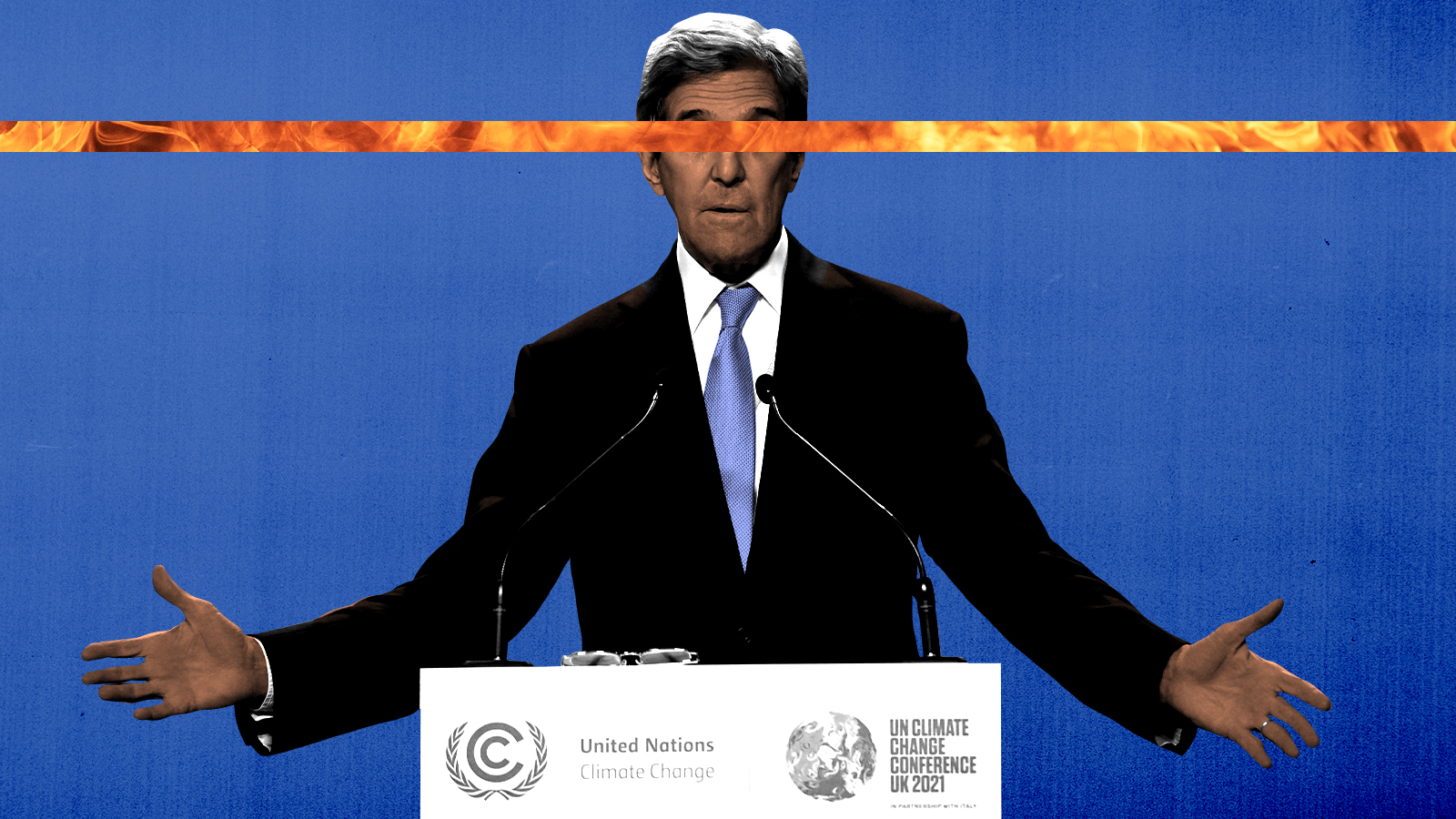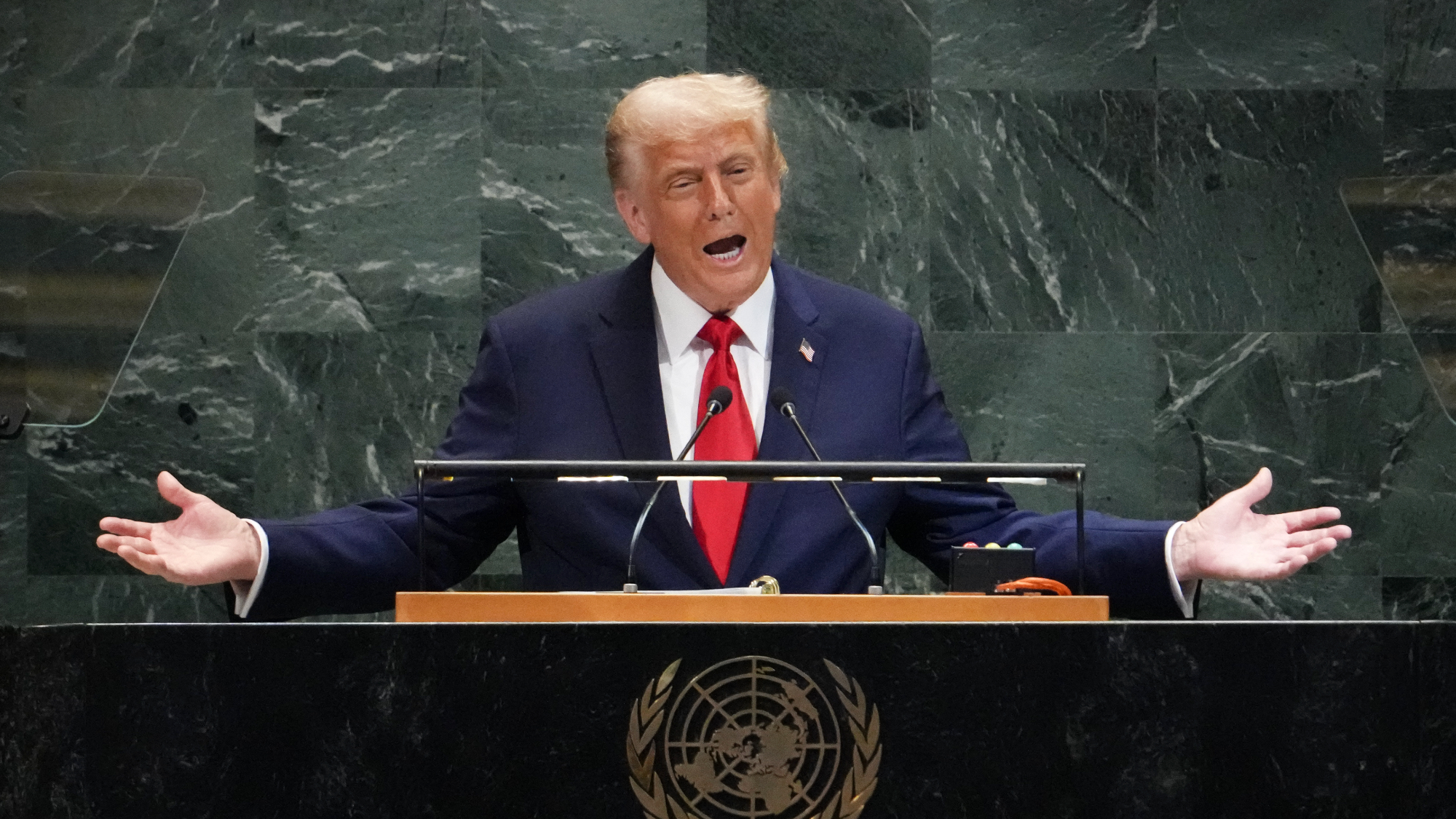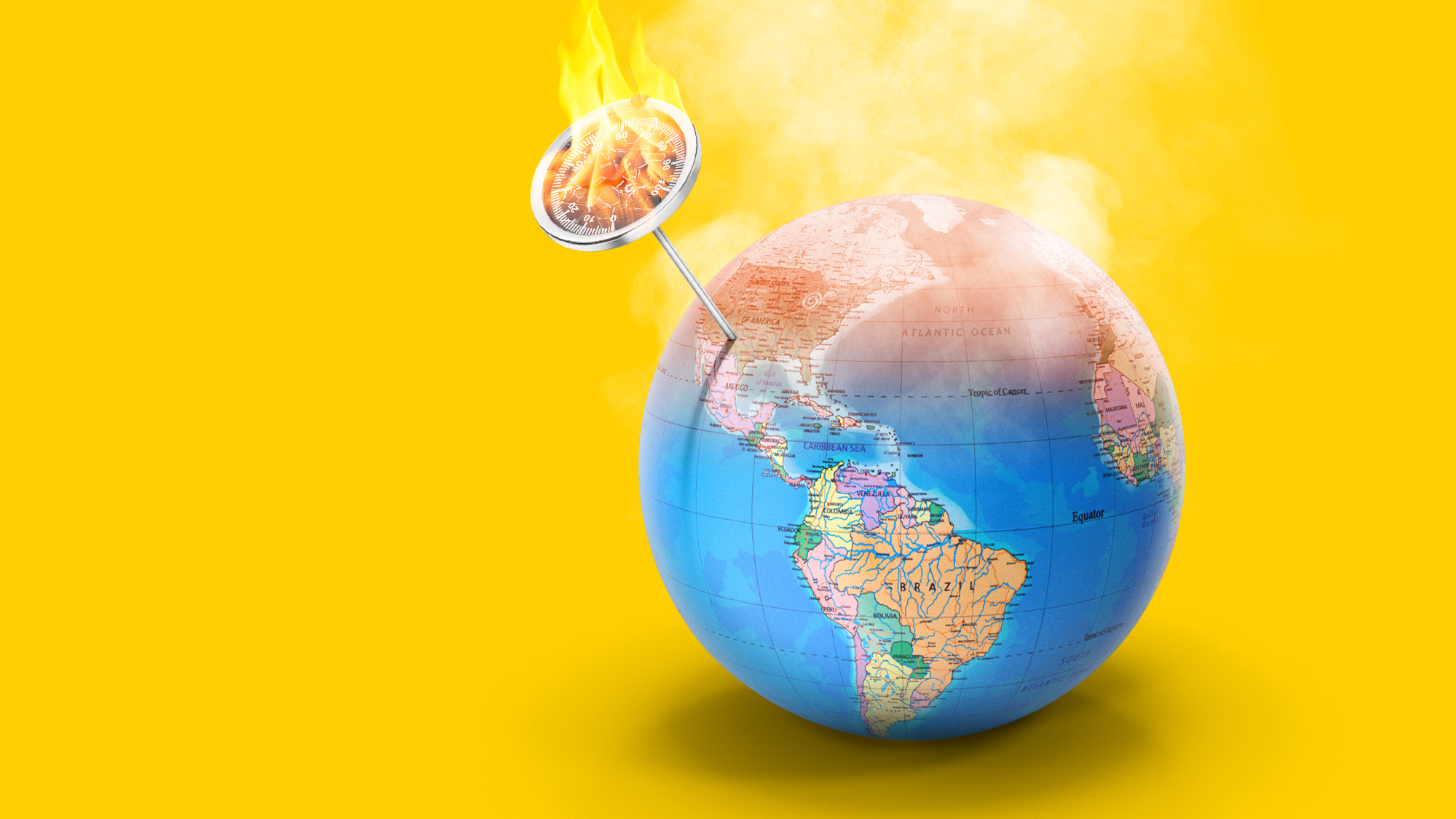The naive fantasy of global action on climate change
The world won't unite to fix this. Countries must take care of themselves.


A free daily email with the biggest news stories of the day – and the best features from TheWeek.com
You are now subscribed
Your newsletter sign-up was successful
The United Nations Climate Change Conference, COP26, concluded in Glasgow on Sunday with predictable results. After two weeks of negotiations, delegates managed to reach an agreement that split the difference between the interests of participating countries. Official sources praised the deal as a step toward the goal of controlling global warming, while critics denounced incremental progress as failure. The whole script could have been written in advance without anyone traveling to Scotland at massive carbon cost.
The next phase is predictable, too. One by one, rich states will abandon commitments to emissions reduction that were already watered down from initial targets. In the United States, a Republican president may abandon the pact entirely, as former President Donald Trump did when he rejected the 2015 Paris Agreement. Then pressure will build to repeat the entire pointless process again.
That scenario would provide plenty of work for diplomats and NGOs. But it will do little to advance their nominal goal. One analysis found that even if the Glasgow commitments are upheld, average temperature will still rise by 2.4 degrees Celsius by 2100, just 0.3 degrees Celsius less than if we make no changes to current policies.
The Week
Escape your echo chamber. Get the facts behind the news, plus analysis from multiple perspectives.

Sign up for The Week's Free Newsletters
From our morning news briefing to a weekly Good News Newsletter, get the best of The Week delivered directly to your inbox.
From our morning news briefing to a weekly Good News Newsletter, get the best of The Week delivered directly to your inbox.
The solution isn't another conference. The underlying problem is that international climate negotiations are based on a deeply naive understanding of collective action. This model of global co-operation to stop climate change is a fantasy.
In this magical vision, agents facing a common problem have incentives to find shared solutions. To illustrate the assumption, imagine a group of people who find themselves in a flooding boat. Assuming they want to survive, it's presumably in their interest to bail out as much as they can.
That's not necessarily how it works in practice, though. In the 1960s, the economist Mancur Olson popularized the concept of "collective action problems." These are situations when agents face perverse incentives which induce them not to help solve shared problems and instead to leave the work to others. When everyone does that, nothing gets done.
Think about the sinking boat again. If it's a small vessel and there aren't many passengers, it's hard for them to avoid doing their share. Every bucket makes a big difference to whether the boaters survive, and everyone can see who's helping out. Under these circumstances, it's likely the vessel will be saved.
A free daily email with the biggest news stories of the day – and the best features from TheWeek.com
But what if it's a really big ship, where individual efforts don't make much difference and there are lots of places to hide? Some passengers will go all out to save the group, but others will probably stand back and let them do the work. If they're lucky, the work of the few heroes will be sufficient to keep the vessel afloat — but maybe they're not lucky. The ship will sink even though all the passengers want to survive.
Leaving your fate in others' hands isn't very admirable, and the risk of catastrophic failure means it could be counterproductive. But it is rational if your goal is to enjoy the greatest possible benefit at the lowest possible cost. And that's how Olson and other theorists of collective action assume most human beings behave.
Although more complicated than fables about boats and buckets, efforts to address climate change are subject to the same problematic logic. In principle, the leaders of almost all states hope to limit the rise in temperatures. But they want to do so in a way that imposes the smallest costs on their own economies and political systems while others absorb the burden. Individuals are sometimes willing to be heroes. Elected officials — and even unelected ones who still worry about public opinion — can't always afford to be.
Because leaders know their ostensible partners are rationally unreliable, moreover, there's no reason for any particular state to undertake costly measures by itself. That isn't just because it's unfair. Because the problem is so big, unilateral action just won't work. The result is states inevitably negotiate minimal commitments they have no real intention of upholding.
When discussing obstacles to cooperation among individuals, Olson and his colleagues emphasized the role of centralized coercion. It's precisely because we don't expect people to make sufficient voluntary contributions to the public purse that the IRS investigates and prosecutes tax evaders. A similar case could be made about the role of military conscription in true national emergencies.
That solution isn't available on the international level. Apart from the legal dimensions of sovereignty, there is no global agency capable of forcing recalcitrant states to accept obligations they don't choose or enforcing those they fail to meet. Australia won't be invaded because it refused a symbolic commitment to ending coal production. Nor are developing countries like India going to stop industrializing to satisfy the demands of already-rich states.
Environmentalists might dream of climate commandos willing and able to act where governments won't. But in the real world, states simply aren't going to embrace the kind of changes that would be necessary to make a difference. That's why the Glasgow agreement is unraveling before the ink is dry. Just days after President Biden addressed the climate conference, his administration prepared to auction drilling rights in the Gulf of Mexico. He shouldn't have bothered interrupting his nap.
Is there any alternative to despair, then? One hope, which is unfashionable but not altogether implausible, is that the forecasts are wrong. One reason dire predictions seem to fall on deaf ears is that they've been made so many times before. "Fact checks" from sympathetic media outlets can't conceal the fact that prominent officials and scientists have been predicting imminent doom for decades. It's possible to believe man-made climate change is happening while doubting whether the impacts will be as devastating as claimed.
But suppose you take the worst-case scenario seriously. Doing so could justify actions that stand outside the normal political process and maybe even outside the law. Groups like Extinction Rebellion propose to use "non-violent direct action and civil disobedience" to persuade governments to act more aggressively. Earlier this week, climate activists in London disrupted the ceremonial induction of the lord mayor of the city of London.
These tactics might play well on social media. But they're deeply alienating to the people they're supposed to persuade. The obstacle to limiting emissions is that normal people mostly like modern technology and the energy required to run it. Blocking traffic and similar inconveniences tend to remind us why we use cars rather than dissuade us from driving them. It doesn't help that climate activists have made clear their concern for future generations doesn't extend to those now living: In an interview last month, Extinction Rebellion co-founder Roger Hallam endorsed blocking ambulances trying to convey patients through demonstrations.
Neither complacently hoping for the best nor taking extreme measures are appealing options, then. But there is a more realistic alternative to repeating the Glasgow farce: for independent states to assume climate change will continue and to prepare as best they can for the consequences. That would likely include committing to nuclear energy as the main low-emissions option, shifting development away from low-lying coastal areas, and seeking domestic sources of natural resources where available or technological alternatives when possible.
These measures aren't available to everyone. One of the sticking points at Glasgow was international funding for poor countries that can't afford mitigation. Setting aside the argument about who is responsible for heating up the world, they need more aid on prudential grounds. If predictions of more frequent droughts, extreme weather, and rising seas are right, climate change will increase already strong incentives to migrate. In addition to trying to maintain decent conditions in sending countries, climate realism suggests North American and European countries have to maintain control of their borders. European leaders seem to be getting the message even if the Biden administration isn't.
These policies won't please everyone. Even if they're a less dystopian vision of a warmer future than the Mad Max films, they do involve a harsher, more competitive, even less egalitarian world in which countries look out for themselves more than they make empty plans to work together. But that's the environmental situation we're in, and more treaties and international conferences aren't going to change it.
Forget about saving the ship. It's time to sink or swim.
Samuel Goldman is a national correspondent at TheWeek.com. He is also an associate professor of political science at George Washington University, where he is executive director of the John L. Loeb, Jr. Institute for Religious Freedom and director of the Politics & Values Program. He received his Ph.D. from Harvard and was a postdoctoral fellow in Religion, Ethics, & Politics at Princeton University. His books include God's Country: Christian Zionism in America (University of Pennsylvania Press, 2018) and After Nationalism (University of Pennsylvania Press, 2021). In addition to academic research, Goldman's writing has appeared in The New York Times, The Wall Street Journal, and many other publications.
-
 The Week contest: AI bellyaching
The Week contest: AI bellyachingPuzzles and Quizzes
-
 Political cartoons for February 18
Political cartoons for February 18Cartoons Wednesday’s political cartoons include the DOW, human replacement, and more
-
 The best music tours to book in 2026
The best music tours to book in 2026The Week Recommends Must-see live shows to catch this year from Lily Allen to Florence + The Machine
-
 Trump’s EPA kills legal basis for federal climate policy
Trump’s EPA kills legal basis for federal climate policySpeed Read The government’s authority to regulate several planet-warming pollutants has been repealed
-
 Trump pulls US from key climate pact, other bodies
Trump pulls US from key climate pact, other bodiesSpeed Read The White House removed dozens of organizations from US participation
-
 The billionaires’ wealth tax: a catastrophe for California?
The billionaires’ wealth tax: a catastrophe for California?Talking Point Peter Thiel and Larry Page preparing to change state residency
-
 Bari Weiss’ ‘60 Minutes’ scandal is about more than one report
Bari Weiss’ ‘60 Minutes’ scandal is about more than one reportIN THE SPOTLIGHT By blocking an approved segment on a controversial prison holding US deportees in El Salvador, the editor-in-chief of CBS News has become the main story
-
 Trump aims to take down ‘global mothership’ of climate science
Trump aims to take down ‘global mothership’ of climate scienceIN THE SPOTLIGHT By moving to dismantle Colorado’s National Center for Atmospheric Research, the White House says it is targeting ‘climate alarmism’
-
 ‘It’s ironic in so many ways’
‘It’s ironic in so many ways’Instant Opinion Opinion, comment and editorials of the day
-
 Newsom slams Trump’s climate denial at COP30
Newsom slams Trump’s climate denial at COP30speed read Trump, who has called climate change a ‘hoax,’ declined to send any officials to this week’s summit
-
 Alaska faces earth-shaking loss as seismic monitoring stations shutter
Alaska faces earth-shaking loss as seismic monitoring stations shutterIN THE SPOTLIGHT NOAA cuts have left the western seaboard without a crucial resource to measure, understand and predict tsunamis
